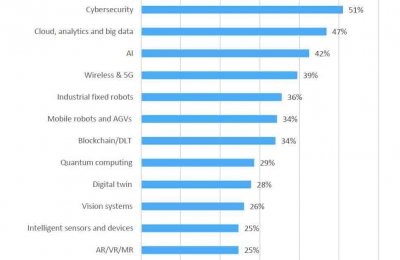Automotive industry keeps TPEs market going: Ceresana
Global revenues generated with thermoplastic elastomers (TPEs) are expected to increase to almost $21 billion by 2027, according to a new report by Ceresana, which has analysed the global market for these innovative materials.
More Stories
Global revenues generated with thermoplastic elastomers (TPEs) are expected to increase to almost $21 billion by 2027, according to a new report by Ceresana, which has analysed the global market for these innovative materials for the third time.
Thermoplastic elastomers are materials that combine the advantages of rubber and plastic. These are elastic, pliable, and flexible like vulcanised elastomers at room temperature. However, when they are heated, they can be melted, shaped repeatedly and recycled like conventional standard plastics. TPEs can also be easily coloured and they allow combinations of hard and soft components, noted the report.
TPE Applications Conquer Everyday Life
TPEs are used in many areas because they offer versatile properties and are easy to process. The most important application areas are transportation, the construction industry, industrial products, shoes and sporting goods, as well as other consumer goods. Around 36 per cent of all TPE products worldwide are processed in the automotive industry. Possible applications of TPEs in this area range from fabric coatings, sealants and covers to inlay mats and bumpers.
TPEs are also in increasing demand in construction and other industries, such as in mechanical engineering, medical technology, and electrical engineering and electronics. TPEs can now be found in numerous everyday products, for example in cable sheathings, roof membranes, soft-touch handles for tools or toothbrushes, as well as in many toys and household appliances, the report said.
Growing Market for Thermoplastic Elastomers
The demand for TPEs is strongly concentrated in the largest economic nations: processors in China, the US, Japan and Germany currently account for more than 60 per cent of the global consumption. The production of TPEs is dominated by manufacturers in Asia, where more than 57 per cent of the global production takes place. North America comes in second place, followed by Western Europe, finds the report.
SBC Is the Most Widely Used Grade of TPE
The market for TPEs is divided into different types of TPEs: styrene block copolymers (SBC), thermoplastic polyolefins (TPO), thermoplastic polyurethanes (TPU), thermoplastic vulcanizates (TPV) and other thermoplastic elastomers.
The market shares of the various types of TPEs vary considerably in some cases, mainly due to the different sizes of the respective customer industries. By far the most commonly used class of TPEs is the group of styrene block copolymers (SBC), which accounts for around 47 per cent of global consumption. Their use ranges from admixtures in adhesives to asphalt modifications in road construction. Thermoplastic polyolefins (TPO) constitute the second largest TPE market. Their main area of application is the transportation industry. Another important type of TPE is thermoplastic polyurethanes (TPU), which are used, for example, for dashboards and housing shells.
The different areas of application of thermoplastic elastomers are also examined in detail in the study. Data and factors influencing the use of TPE in the segments transportation, construction, other industries, shoes and sporting goods, as well as other consumer goods are analysed separately.
The report also provides an in-depth analysis of the 16 most important countries for the TPE market: detailing the demand, exports, imports, production, and revenues. The countries are also reviewed in terms of the different application areas. The data on demand volumes per country are furthermore divided by each product type.
The study lists many top manufacturers including the 59 most important producers of TPE. Some of the most important manufacturers are, for example, China Petroleum & Chemical Corp (Sinopec), Exxon Mobil Corporation, Versalis, BASF, Dynasol Group, DuPont De Nemours, Compagnie de Saint-Gobain, LyondellBasell Industries, Mitsubishi Chemical Corporation, and Sumitomo Chemical.—TradeArabia News Service
Projects
















